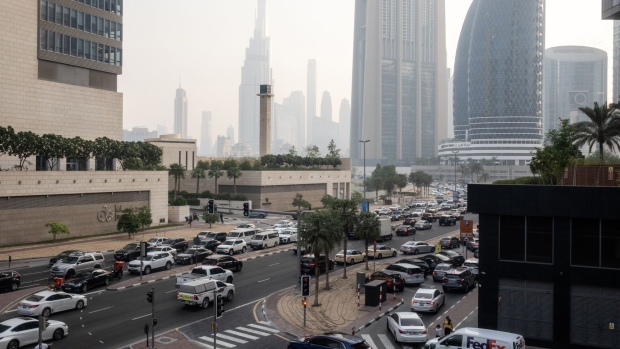Biden Open to Debates with Trump Amid Media Critique and Campaign Concerns
In a political climate rife with media skepticism and strategic campaigning, Presidents Biden and Trump signal readiness for potentially game-changing debates.
Published April 27, 2024 - 00:04am

Image recovered from mediaite.com
Recent statements from President Joe Biden indicate a willingness to engage in public debates with former President Donald Trump, amidst ongoing speculations and strategic positioning for the upcoming November elections. The discourse around this potential political showdown has been catalyzed by comments made in various media interviews and has extended into discussions about the role of a free press and the current media environment.
In a candid hour long interview with Howard Stern, President Biden expressed concerns over the media's hesitation to critique Trump, reflecting on the state and role of 'modern media'. This observation precedes the upcoming White House Correspondents Dinner, where Biden plans to invoke Thomas Jefferson in celebrating a 'free press'. According to Biden, the media's reluctance to confront the former president represents a marked change from historical norms.
Biden's statements resonated with the interviewer Howard Stern, touching on personal losses and his long career before turning to his possible November opponent. Critiquing the media indirectly also alludes to reported tensions between the White House and prominent news outlets like The New York Times over Trump coverage.
Meanwhile, Trump has openly welcomed the idea of debating Biden, demonstrating enthusiasm for confronting the man who defeated him in 2020. On his platform, Truth Social, he suggested a willingness to debate 'any time, anywhere' and even proposed a live debate during one of his Michigan rallies, or facetiously, at the New York court where he currently faces charges over alleged falsification of business records.
On the debate front, the nonpartisan Commission on Presidential Debates has set dates and venues for the presidential hopefuls to square off in September and October. Trump has expressed his desire for earlier debates, meanwhile questioning the commission's impartiality based on decisions made during the 2020 election cycle. For Biden, who characterizes Trump as a threat to democracy, the willingness to debate is contoured by Trump's 'behavior'.
The prospect of these high-stakes debates unfolding has been met with skepticism from various corners of the media. Opinions range from confidence in Trump's campaign to concerns about Biden's public speaking performances and potential debate hesitance, reflecting the contentious and charged atmosphere of the upcoming election. Speculations about whether the both aging candidates will effectively engage or if the debates will take place at all hold significant implications for the political landscape.
As the election approaches, both campaigns appear to be calculating their moves carefully, with the Biden campaign having earlier been ambiguous about debating and the media parsing every indication of the candidates' intentions. The idea of a repeat of the acrimonious 2020 election debates unfolds against a backdrop of political turbulence and a polarized electorate potentially hanging in the balance.
The evolving political dynamics as the United States heads towards the November elections are indeed reflective of changing campaign strategies in contemporary politics. Both President Biden and former President Trump are seasoned politicians who comprehend the significance of public perception and media influence. President Biden's recent remarks signal not only his readiness to engage with his predecessor but also throw light on a media landscape that appears reticent in its engagement with Trump's controversial presence.
Biden's willingness to invoke Thomas Jefferson is also a nod to the historical significance of free press in American politics. This stance resonates at a time when democratic institutions and norms are being examined and tested across the globe. The White House Correspondents Dinner offers a platform for Biden to champion the media while subtly positioning his narrative for the upcoming electoral showdown. Celebrating the role of journalists, Biden underscores the importance of media vigilance in safeguarding democracy.
Despite such anticipated encounters, the polarization in American society has been palpable, with both camps representing vastly different constituencies. Trump has capitalized on his persona of being an anti-establishment figure, often directly appealing to his base through social media platforms and rallies. His comments on Truth Social and rally speeches emphasize his strategic use of digital media to bypass traditional outlets, a technique that arguably contributed to his rise in 2016.
President Biden, on the other hand, has adopted a more traditional stance, emphasizing the importance of following democratic norms and maintaining a respectful campaigning arena. His characterization of Trump as a 'threat to democracy' starkly contrasts with Trump's rhetoric, setting the stage for what might become a philosophically charged debate series.
Questions on the objectivity and neutrality of institutions like the Commission on Presidential Debates also loom large over the electoral process. The perceived impartiality of such institutions is crucial for maintaining the integrity of the debates as a democratic exercise. Previous disputes over debate rules and conduct have led to calls for reform in the way presidential debates are managed and moderated.
The anticipation surrounding the debates extends beyond the potential Biden-Trump face-off to encompass broader concerns about the state of political discourse in the U.S. The accountability of candidates, the scrutiny of their policies, and their capacity to navigate complex issues during the debates are significant elements of the pre-election period. In this environment, every public appearance, statement, and indeed, the debates themselves become pivotal moments that could shape the outcome of what promises to be a fiercely contested presidential race.
As November looms on the horizon, the American electorate is watching closely, with both optimism and trepidation. The debates, if they come to fruition, will not only be a test of the candidates' policy knowledge and charisma but will also serve as a mirror reflecting the current state of American politics and democracy. The coming months are sure to be filled with strategic positioning and rhetoric as Biden and Trump prepare for what may be one of the most significant electoral contests in modern U.S. history.







